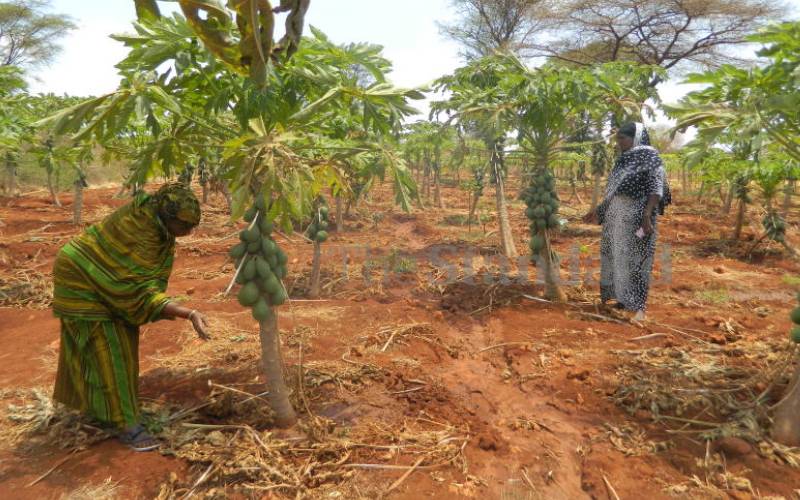×
The Standard e-Paper
Smart Minds Choose Us

A lot of rural women occupy land in whose use they have no say. [Ali Abdi, Standard]
The rainy season is here, and the likelihood of death or destruction in areas prone to flooding is not far fetched. Some in rural areas suffer because of improper use of land, based on choices made for the here and now.